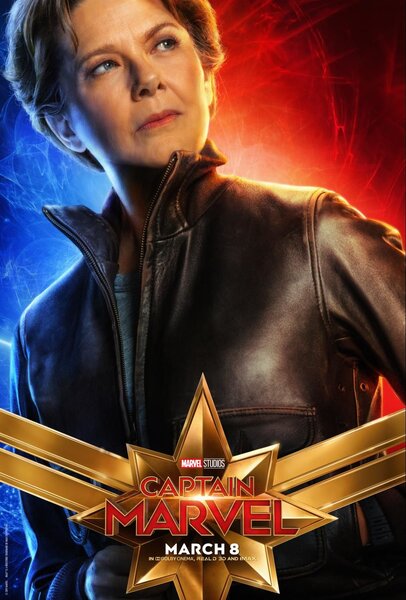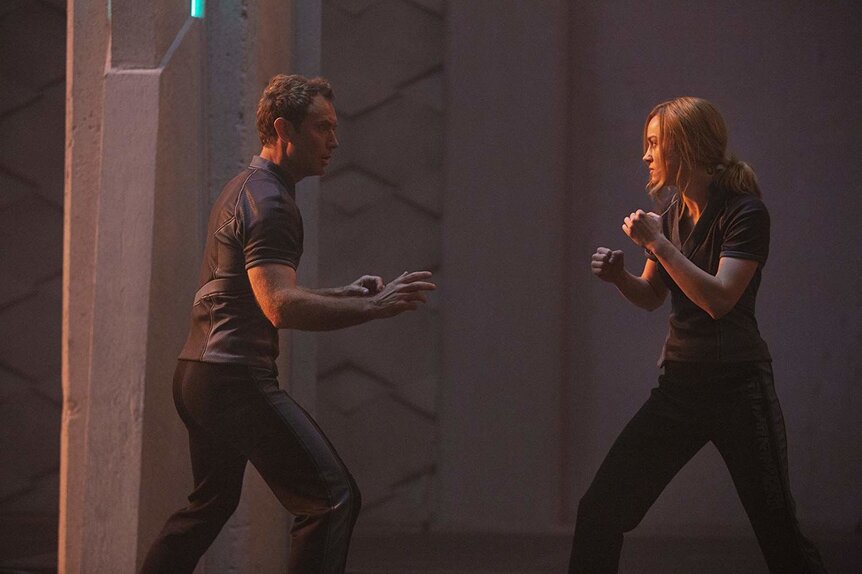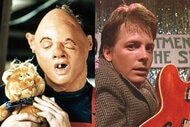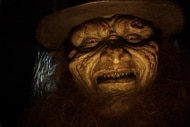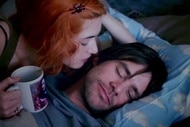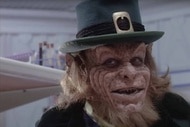Create a free profile to get unlimited access to exclusive videos, sweepstakes, and more!
The importance of female mentorship in Captain Marvel
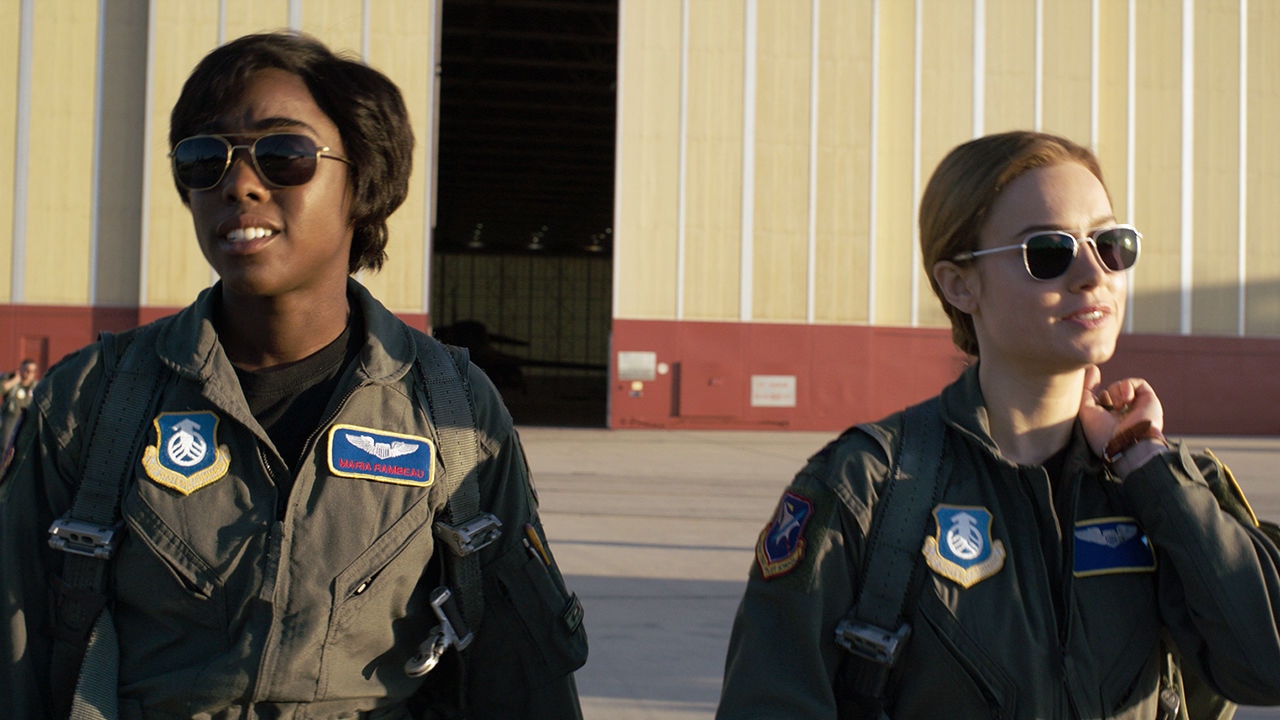
Spoilers for Captain Marvel below.
While Captain Marvel is not as radically feminist as some have hoped (and some have feared), it still boasts a lot of pleasures for the feminist-minded fan: Brie Larson’s charmingly roguish turn as Carol, Carol and Maria’s beautiful friendship, and dropping No Doubt over a fight scene—that last one might be an easy win, but boy howdy is it a win!
Oh, and I can’t forget the sheer pleasure of Annette Bening, looking exactly like what a physicist in her late 50s would look like, as Dr. Wendy Lawson.
Or, rather, as Mar-Vell.
I absolutely gasped in my packed theater at that revelation, although I honestly should have seen it coming from a mile away—after all, the original Captain Marvel used to go by Dr. Walter Lawson. It’s one of the finest pieces of character re-imagining in the Marvel Cinematic Universe, on the level of JARVIS becoming the Vision: utterly fresh but makes so much sense you wonder how nobody ever thought of it before.
You see, Captain Marvel doesn’t just change Mar-Vell’s gender. The film also transforms the character from a conflicted Kree warrior turned superhero to a renegade Kree scientist working to help the Skrulls flee Kree oppression. This fundamentally changes Carol’s origin story, making it not about accidentally receiving her powers from a male superhero in a freak Psyche-Magnetron accident, but about inheriting the mantle from—and living up to—the example of her respected mentor. (It’s still a freak accident, though. You gotta have the freak accident!)
Seeing women mentoring other women in film is painfully rare since it requires a film to not only pass the Bechdel Test but also include a role for a woman over 40. But it’s been cropping up more and more recently, even in genre films. Wonder Woman features Diana training under the watchful and competent eyes of General Antiope, while the Marvel Cinematic Universe has already flirted with the idea by having Hope van Dyne step into the role her mother originated as the Wasp.
But Captain Marvel turns it up to 11. All of Carol’s strongest relationships are with other women who understand where she’s coming from, as she appears to be estranged from the father and brother we briefly see in flashbacks. Carol and Maria emotionally support one another and create a found family together with Maria’s daughter Monica (who fans hope will become a superhero in her own right, following her role in the comics), and it’s Lawson who mentors and supports them both.
While Captain Marvel discusses and displays the realities of being a woman in the Air Force in the late '80s, it doesn’t engage as deeply with those politics as other Marvel Cinematic Universe films have with other issues, like Black Panther’s thoughtful exploration of the African diaspora and Thor: Ragnarok’s gleeful rejection of imperialism. But Lawson’s efforts to use the Tesseract to create a tool for peace is one of the most progressive elements in the film. Lawson offers Maria and Carol, who are barred from flying combat missions as women, an opportunity to not only do what they were trained for but make a real difference by assisting her in test flights of her lightspeed engine. Essentially, in an institution whose odds are stacked against them, Lawson offers them a purpose that ends up being greater than any Terran military organization can offer. Both Maria and Carol speak admiringly of Lawson, often quoting her goal to create something that will end the wars, and she’s a clear inspiration for what Carol plans to do with her near-unlimited power—not fight wars, but end them.
All of this stands out even more when we compare Lawson to Yon-Rogg, who is introduced to us by every cinematic convention as Carol’s mentor. He’s her commanding officer, he spars with her, and he often talks about her reaching her potential. Oh, and he’s played by Jude Law, who is currently running a cottage industry of playing older but still roguishly handsome mentors (see Dumbledore). But as the film progresses, we learn that Yon-Rogg and the Supreme Intelligence he serves are the real villains — and that his “mentorship” of Carol was meant to control her, not encourage her.In a film that barely addresses sexuality outside of the harassment Carol faces, Yon-Rogg nonetheless objectifies her, seeing her more as a vessel for the power of the Tesseract and immediately turning on her (“I used to think you were amusing.”) when she proves uncontrollable. The final confrontation between Yon-Rogg and Carol, where he attempts to emotionally manipulate her, shows how little he truly thinks of her. (Carol’s response, of course, is spot-on.) To him, she was only ever a means to an end: Kree imperialism.
But to Lawson, Carol—not Carol with the powers of the Tesseract, but Carol as a human—was someone to respect, with potential to encourage and nurture. In a film full of moments that made me rear back and roar, it’s Lawson’s presence that feels truly feminist: both by being one of the rare female mentors onscreen and by working to outsmart an oppressive institution like the Kree Empire with other women.
It’s a lot to live up to; Mar-Vell casts a long shadow. But we know Carol can handle it. After all, there’s a reason she’s Captain Marvel.
